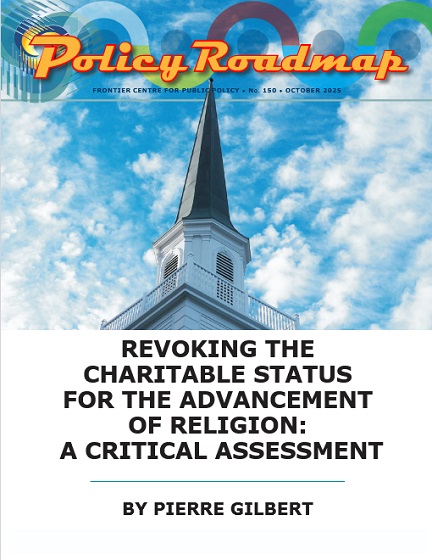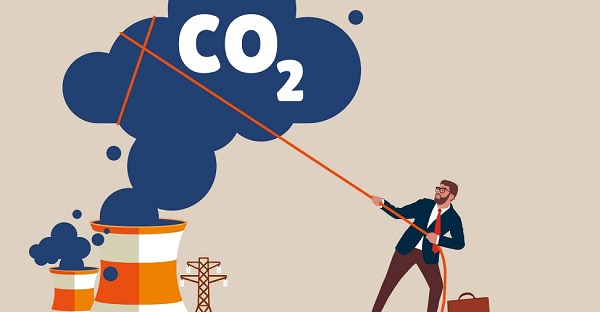Business
Trump admin cuts funding of Australian universities that promote gender ideology

From LifeSiteNews
Many researchers appear to feel that they are entitled to American funding regardless of whether the research being funded is in the American or, indeed, even the public interest.
According to the Guardian, the U.S. government has cut off research funding at six Australian universities, including Monash University, Australian National University, the University of Melbourne, the University of Sydney, the University of South Wales, and the University of Western Australia. The reason? The Trump administration has informed researchers that the “temporary” funding pause was due to the new U.S. policy of avoiding “DEI, woke gender ideology, and the green new deal.”
These details emerged from a memo sent to one of the universities, which was viewed by the Guardian. It reads:
Financial assistance should be dedicated to advancing Administration priorities, focusing taxpayer dollars to advance a stronger and safer America, eliminating the financial burden of inflation for citizens, unleashing American energy and manufacturing, ending ‘wokeness’ and the weaponization of government, promoting efficiency in government, and Making America Healthy Again. The use of Federal resources to advance Marxist equity, transgenderism, and green new deal social engineering policies is a waste of taxpayer dollars that does not improve the day-to-day lives of those we serve.
The funding pause comes while each project is vetted via a “comprehensive analysis” to ensure that the president’s executive orders – including those on gender ideology – are being complied with.
“In the interim, to the extent permissible under applicable law, Federal agencies must temporarily pause all activities related to obligation or disbursement of all Federal financial assistance, and other relevant agency activities that may be implicated by the executive orders, including, but not limited to, financial assistance for foreign aid, nongovernmental organizations, DEI, woke gender ideology, and the green new deal,” the memo stated.
According to Universities Australia CEO Luke Sheehy, the funding pause indicates a “worrying trend” from the “biggest foreign partner we have” and that the U.S. “is looking like its becoming unreliable.” American funding for research projects amounted to over $400 million in 2024, which is “equivalent to around half the funding the federal [Australian] government provided in research grants via the Australian Research Council.”
Ironically, the Guardian reported that earlier this month, “the Trump administration was accused of “blatant foreign interference” in Australia’s universities after researchers who receive US funding were sent a questionnaire asking to confirm they aligned with US government interests.” In short, many researchers appear to feel that they are entitled to American funding regardless of whether the research being funded is in the American or, indeed, even the public interest. Some of the research, particularly medical research, clearly qualifies. But the idea that it is “foreign interference” for funders to ask for details on how those funds are being used exposes the extent to which the U.S. taxpayer has been viewed as a cash cow by international institutions.
The funding cuts aren’t just happening abroad. The Department of Health and Human Services (HHS) has terminated over 500 research grants related to DEI and transgender ideology. Hundreds of National Institutes of Health (NIH) research grants, worth over $350 million, have been canceled, including, according to Fox News, projects focusing on “multilevel and multidimensional structural racism,” “gender-affirming therapy in mice,” and “microaggressions.” Other transgender research projects were cancelled as well.
The criticisms of these cuts, it must be noted, only flow in one direction. When Democrats appoint ideologically aligned personnel to essential posts and ensure that federal funding is directed towards their priorities, this is considered normal. Conversely, when Republicans do so, it is considered a violation of “norms.” In short, “norms” means that regardless of who holds office, progressive priorities continue unabated. The Trump administration appears to have had enough of this double standard.
Business
Over two thirds of Canadians say Ottawa should reduce size of federal bureaucracy

From the Fraser Institute
By Matthew Lau
From 2015 to 2024, headcount at Natural Resources Canada increased 39 per cent even though employment in Canada’s natural resources sector actually fell one per cent. Similarly, there was 382 per cent headcount growth at the federal department for Women and Gender Equality—obviously far higher than the actual growth in Canada’s female population.
According to a recent poll, there’s widespread support among Canadians for reducing the size of the federal bureaucracy. The support extends across the political spectrum. Among the political right, 82.8 per cent agree to reduce the federal bureaucracy compared to only 5.8 per cent who disagree (with the balance neither agreeing nor disagreeing); among political moderates 68.4 per cent agree and only 10.0 per cent disagree; and among the political left 44.8 per cent agree and 26.3 per cent disagree.
Taken together, “67 per cent agreed the federal bureaucracy should be significantly reduced. Only 12 per cent disagreed.” These results shouldn’t be surprising. The federal bureaucracy is ripe for cuts. From 2015 to 2024, the federal government added more than 110,000 new bureaucrats, a 43 per cent increase, which was nearly triple the rate of population growth.
This bureaucratic expansion was totally unjustified. From 2015 to 2024, headcount at Natural Resources Canada increased 39 per cent even though employment in Canada’s natural resources sector actually fell one per cent. Similarly, there was 382 per cent headcount growth at the federal department for Women and Gender Equality—obviously far higher than the actual growth in Canada’s female population. And there are many similar examples.
While in 2025 the number of federal public service jobs fell by three per cent, the cost of the federal bureaucracy actually increased as the number of fulltime equivalents, which accounts for whether those jobs were fulltime or part-time, went up. With the tax burden created by the federal bureaucracy rising so significantly in the past decade, it’s no wonder Canadians overwhelmingly support its reduction.
Another interesting poll result: “While 42 per cent of those surveyed supported the government using artificial intelligence tools to resolve bottlenecks in service delivery, 32 per cent opposed it, with 25 per cent on the fence.” The authors of the poll say the “plurality in favour is surprising, given the novelty of the technology.”
Yet if 67 per cent of Canadians agree with significantly shrinking the federal bureaucracy, then solid support for using AI to increasing efficiency should not be too surprising, even if the technology is relatively new. Separate research finds 58 per cent of Canadian workers say they use AI tools provided by their workplace, and although many of them do not necessarily use AI regularly, of those who report using AI the majority say it improves their productivity.
In fact, there’s massive potential for the government to leverage AI to increase efficiency and control labour expenses. According to a recent study by a think-tank at Toronto Metropolitan University (formerly known as Ryerson), while the federal public service and the overall Canadian workforce are similar in terms of the percentage of roles that could be made more productive by AI, federal employees were twice as likely (58 per cent versus 29 per cent) to have jobs “comprised of tasks that are more likely to be substituted or replaced” by AI.
The opportunity to improve public service efficiency and deliver massive savings to taxpayers is clearly there. However, whether the Carney government will take advantage of this opportunity is questionable. Unlike private businesses, which must continuously innovate and improve operational efficiency to compete in a free market, federal bureaucracies face no competition. As a result, there’s little pressure or incentive to reduce costs and increase efficiency, whether through AI or other process or organizational improvements.
In its upcoming budget and beyond, it would be a shame if the federal government does not, through AI or other changes, restrain the cost of its workforce. Taxpayers deserve, and clearly demand, a break from this ever-increasing burden.
Business
Former Trump Advisor Says US Must Stop UN ‘Net Zero’ Climate Tax On American Ships


From the Daily Caller News Foundation
Later this week the United Nations will hold a vote on a multi-billion climate-change tax targeted squarely at American industry. Without quick and decisive action by the White House, this U.N. tax on fossil fuels will become international law.
This resolution before the International Maritime Organization will impose a carbon tax on cargo and cruise ships that carry $20 trillion of merchandise over international waters. Roughly 80% of the bulkage of world trade is transported by ship.
The resolution is intended to advance the very “net zero” carbon emissions standard that has knee-capped the European economies for years and that American voters have rejected.
This tax is clearly an unnecessary restraint on world trade, thus making all citizens of the world poorer.
It is also an international tax that would be applied to American vessels and, as such, is a dangerous precedent-setting assault on U.S. sovereignty. Since when are American businesses subject to international taxes imposed by the United Nations?
The U.S maritime industry believes the global tax would cost American shippers more than $100 billion over the next seven years if enacted.
Worst of all, if the resolution passes, it will require the retirement of older ships and enable a multi-billion-dollar wealth transfer to China, which has come to dominate shipbuilding in recent years. China STRONGLY supports the tax scheme, even though, ironically, no nation has emitted more pollutants into the atmosphere than they have. Yet WE are getting socked with a tax that indirectly pays for THEIR pollution.
Despite the fact that we pay a disproportionate share of the tax, the U.S. has almost no say on how the revenues are spent. This is the ultimate form of taxation without representation.
Even if the United States chooses not to implement the tax on domestic shipping, it will still be enforced by foreign ports of origin or destination as well as by flag states. As a result, American importers and exporters will be required to pay the tax regardless of domestic policy decisions.
Secretary of State Marco Rubio, Secretary of Energy Chris Wright, and Secretary of Transportation Sean Duffy have jointly stated that America “will not accept any international environmental agreement that unduly or unfairly burdens the United States or our businesses.” They call the financial impact on the U.S. of this global carbon tax “disastrous, with some estimates forecasting global shipping costs increasing as much as 10% or more.”
The U.S. maritime industry complains that although American vessels carry only about 12% of the globally shipped merchandise, U.S. flag vessels would bear almost 20% of this tax. No wonder China and Europe are for it. The EU nations get 17 yes votes to swamp the one no vote out of Washington.
Unfortunately, right now without White House pressure, we could lose this vote because of defections by our allies.
To prevent this tax, the White House should announce a set of retaliation measures. This could include a dollar-for-dollar reduction in U.S. payments to NATO, the U.N., IMF and World Bank.
At a time when financial markets are dealing with trade disputes, the last thing the world — least of all the United States — needs is a United Nations excise tax on trade.
Stephen Moore is co-founder of Unleash Prosperity and a former Trump senior economic advisor.
-

 Alberta2 days ago
Alberta2 days agoFact, fiction, and the pipeline that’s paying Canada’s rent
-

 Business2 days ago
Business2 days agoFinance Titans May Have Found Trojan Horse For ‘Climate Mandates’
-

 Energy1 day ago
Energy1 day agoIndigenous Communities Support Pipelines, Why No One Talks About That
-

 International2 days ago
International2 days agoSigned and sealed: Peace in the Middle East
-

 Alberta1 day ago
Alberta1 day agoOil Sands are the Costco of world energy – dependable and you know exactly where to find it
-

 Business1 day ago
Business1 day agoFinance Committee Recommendation To Revoke Charitable Status For Religion Short Sighted And Destructive
-

 International1 day ago
International1 day agoNumber of young people identifying as ‘transgender’ declines sharply: report
-

 Alberta1 day ago
Alberta1 day agoThe Technical Pitfalls and Political Perils of “Decarbonized” Oil







